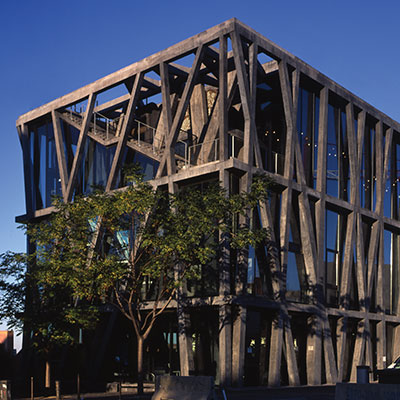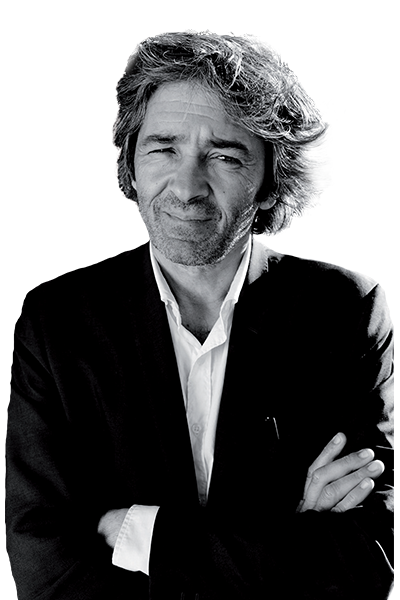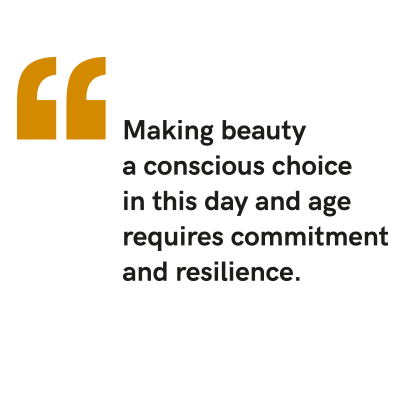
THE MASTER OF CONCRETE
The French architect from Bandol has an innate sense of form and esthetics.
He is a past master of sculpted concrete, bringing cement to life with curves and lattice work.
The MUCEM in Marseille, the Cocteau Museum in Menton, the Islamic Arts section of the Louvre, the Pavillon Noir in Aix-en-Provence... each of his graceful, emblematic creations is an ode to beauty.
Pictured (left): National Choreographic Centre, Aix-en-Provence

Here we bring you a frank interview on the launch of his latest book, The Exile of Beauty, published by Éditions Textuel
So, Rudy Ricciotti, concrete is your speciality and you manage to make it bold and beautiful while others see it as something rather cold. Would it be true to say that “Concrete and Old Lace” could be your trademark?
Rudy Ricciotti: Well I don’t go in much for word play when it comes to architecture: what I try to do is construct whole sentences, trying to avoid mistakes. Telling a story often requires a feminine touch. Over time, and with the application of a certain amount of science, my work has become more feminine, more graceful. Femininity has, at its core, a well-constructed narrative, like a scientific experiment taken to extreme lengths.
Does architecture today concern itself with creating a new sense of transience, giving the viewer the idea of a fleeting breach in time and space?
R.R.: A narrative demands continuity rather than a breach. It is fundamentally important to establish a narrative in order to make a stand against the way in which beauty is being ostracised.
Your projects often target diverse audiences: stadiums, museums, universities, and now Lillenium, a combination of a shopping center and gallery. What are the challenges that these projects have in common?
R.R.: What they have in common is a reliance on crafts and trades which allows us to promote French craftsmanship and the local economy.
The construction of any major city has to take into account pedestrians. What is an architect’s role in relation to the quality of life of a neighbourhood?
R.R. : The architect is responsible for creating something that is beautiful and durable as well as bringing dignity to a space. Talking about pedestrianisation in the same breath as the visual aspect seems ridiculous. Visual beauty opens up a greater sensual awareness.

New types of behaviour and changing needs are driving the ways in which towns and public spaces are used. Have you noticed a trend towards beautifying the mundane and the utilitarian in public spaces?
R.R.: It needs to be more than just a trend, it’s an urgent necessity. This pathological deterioration is spreading like a virus... I have not seen much improvement. Our public spaces are being ruined by advertising and logos, by consumerism. And pessimism is taking hold in spite of the talent we have among French architects.
Is this refusal to cast beauty aside your new battleground?
R.R.: Making beauty a conscious choice in this day and age requires commitment and resilience. I am fighting against the
collapse of esthetics. I may not be capable of defining beauty, but I can define ugliness. Fighting against the disfigurement of
our cities and our landscapes is quite patriotic, don’t you think?
Your projects often use DELABIE products, were you aware of that?
R.R.: Ah yes, the urinals! They remind me that Marcel Duchamp
was French! So as a proud patriot, that suits me just fine!
*L'exil de la beauté, éditions Textuel, 2019
Photo credit: Rudy Ricciotti Agency, René Habermacher, Philippe Ruault



